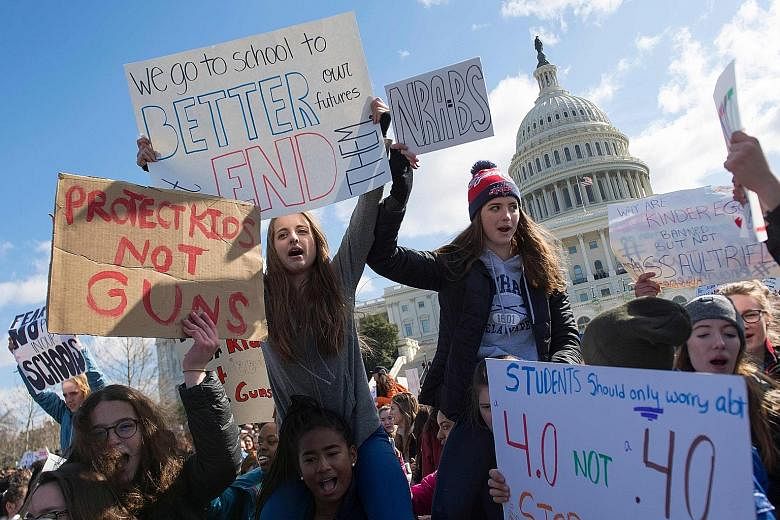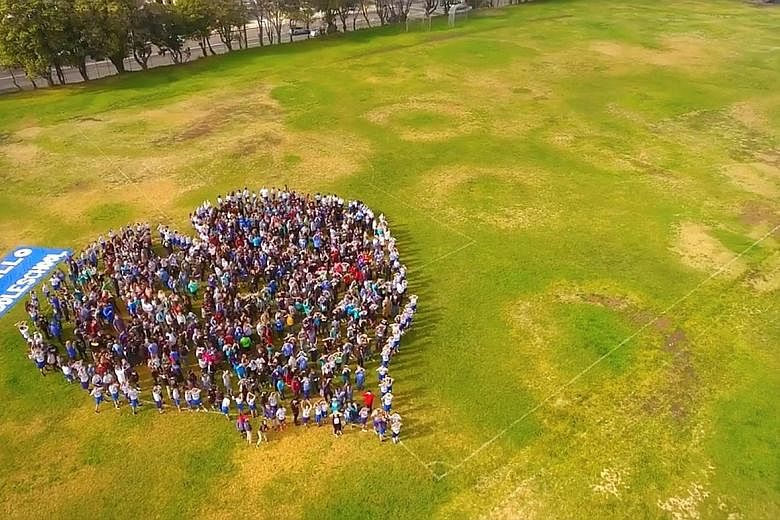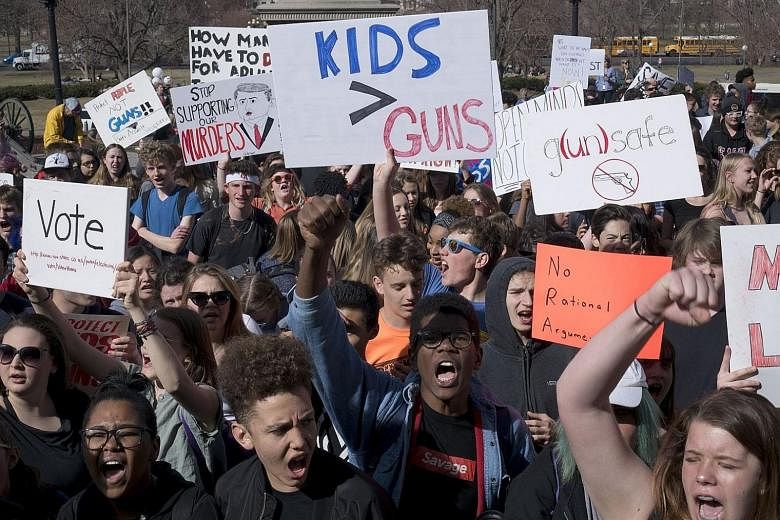WASHINGTON • The United States House of Representatives has passed a law authorising more money for metal detectors, locks and other school security measures, but took no steps to tighten gun control laws a month after a Florida school shooting that killed 17 people.
While students marched across the country demanding changes to address one of America's most vexing social issues, lawmakers on Wednesday voted 407-10 for legislation to spend US$50 million (S$66 million) to US$75 million a year on school security and safety training, from next year until 2028 .
No parallel measure was pending in the Senate, where a more ambitious Bill was being debated, but prospects for meaningful gun control reforms in Congress remained remote in the face of stiff resistance from gun industry lobbyists.
"This Bill, on its own, is not the kind of meaningful congressional action needed to address this crisis of gun violence," Representative Steny Hoyer, a Maryland Democrat said.
"This must be a first step, and it must be followed by a serious effort to pass legislation that expands background checks, and bans military-style assault weapons."
It was unclear when the Senate would take up the Bill, which needs Senate approval to become law.
US President Donald Trump applauded the Bill, the White House said, though it falls far short of broader gun control laws he talked about after the shooting at Marjory Stoneman Douglas High School in Parkland, Florida last month.
The Bill would not allow any of the funding to be used for arming teachers or other school personnel. The White House said the Bill would be improved by lifting that restriction.
Since the Parkland massacre, student protesters have successfully lobbied for tighter gun controls in Florida. Hundreds of them gathered outside the Capitol to urge Congress to take action on placing new limits on firearms and gun sales.
In the Senate, a Bill to strengthen existing background checks of gun purchasers enjoys broad bipartisan support but has not been scheduled for debate. Congressional aides said discussions were under way about folding the school safety and background check Bills into a government funding Bill that lawmakers want to pass by March 23.
Eleven organisations, including some gun control and law enforcement groups, wrote to Senate Majority Leader Mitch McConnell, a Republican, and Senate Democratic Leader Chuck Schumer urging passage this month of the background checks Bill.
Since the Florida shooting, the Republican-led Congress and the Trump administration have considered measures to curb gun violence while trying to avoid crossing the powerful National Rifle Association lobby group, or threatening the right to bear arms enshrined in the US Constitution's Second Amendment.
In her testimony before the Senate Judiciary Committee, Ms Katherine Posada, a teacher at the school, recounted the horror she experienced on the day of the shooting, and urged Congress to ban assault-style weapons such as the AR-15 rifle used by alleged shooter Nikolas Cruz.
"Some of the victims were shot through doors, or even walls. A knife can't do that," Ms Posada said. "How many innocent lives could have been saved if these weapons of war weren't so readily available?"
On Wednesday, a Florida judge entered a plea of not guilty for Cruz, 19, after he chose to remain silent during the hearing. He faces the death penalty for the massacre.
REUTERS



